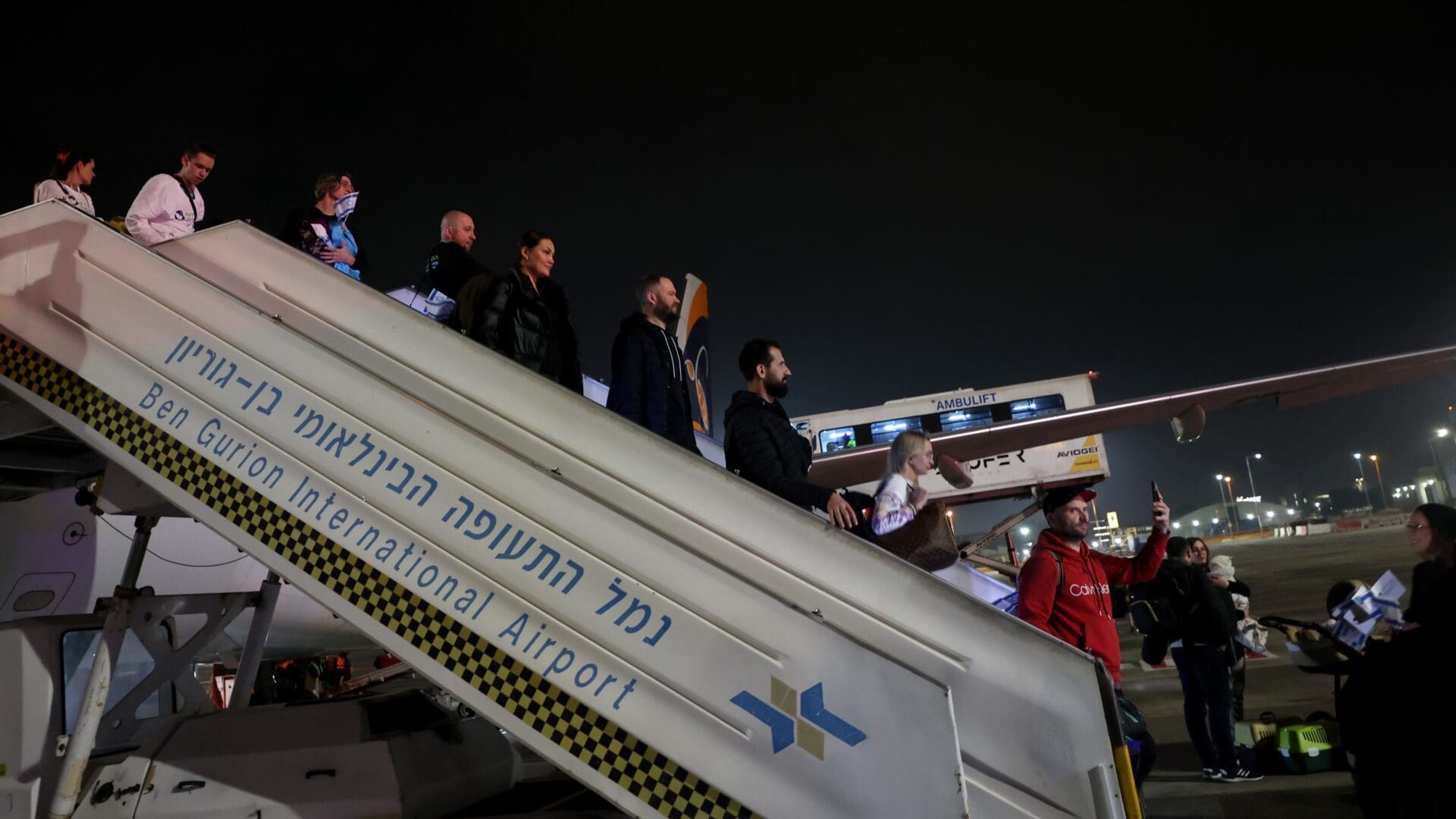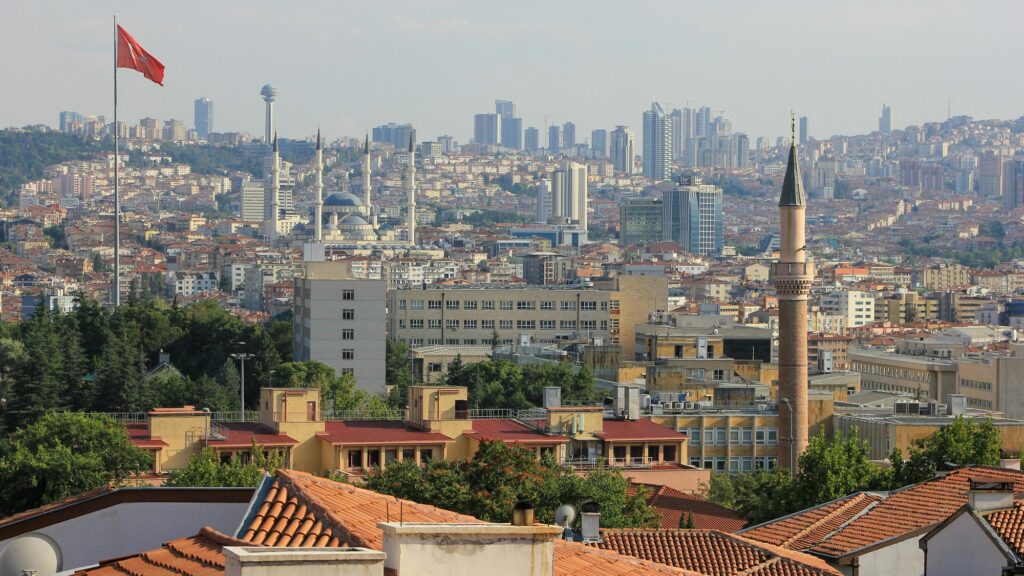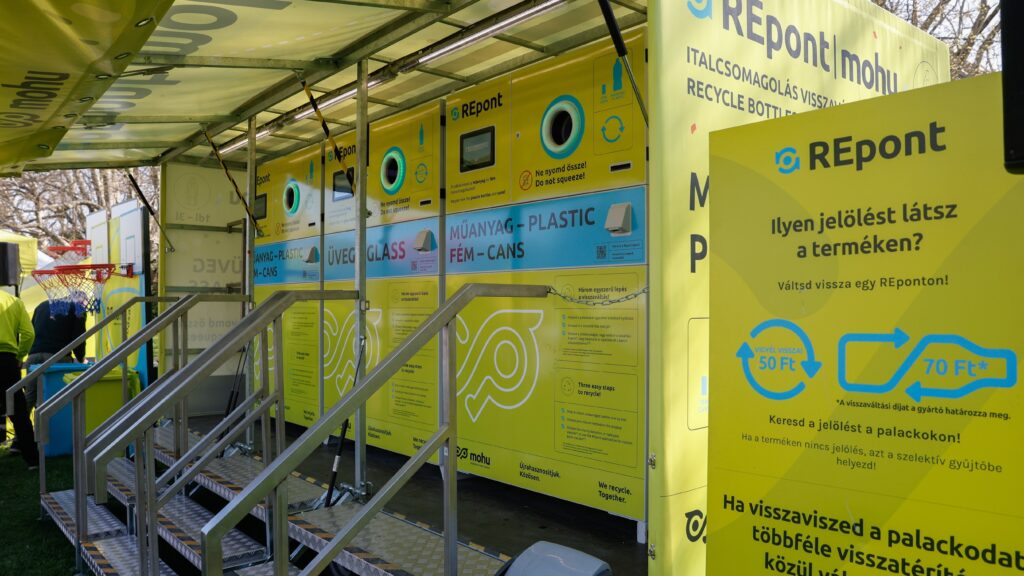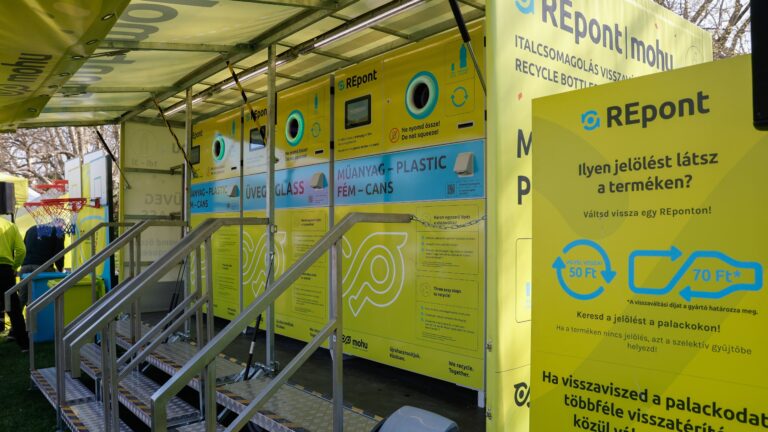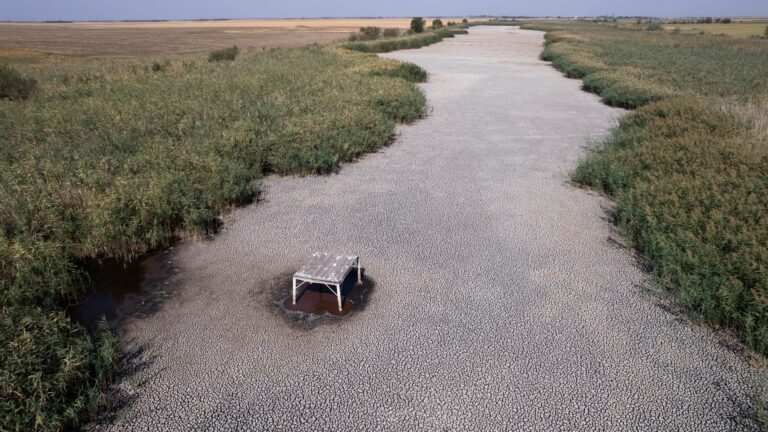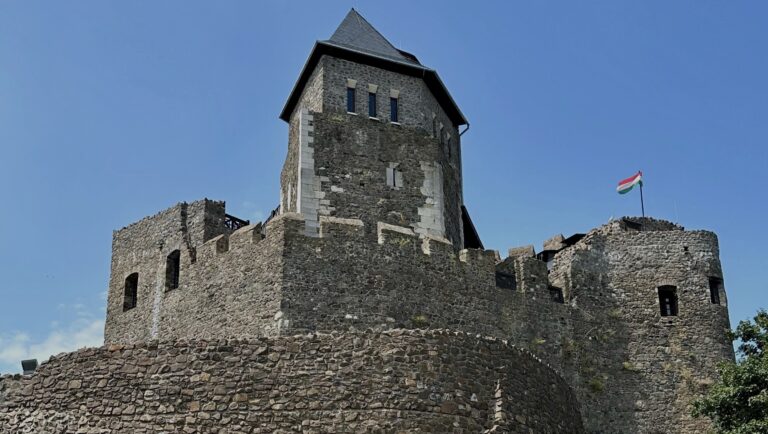As an article in The Times of Israel highlighted, throughout history, Ukrainian Jewish communities have always suffered from violence and oppression in times of wars and conflict, by invaders and the locals alike. However, despite the tragedies of the Russo-Ukrainian war, it has been an exceptional conflict for the Ukrainian Jews in the sense that they haven’t been the focus of attacks but of humanitarian assistance from Jewish and Christian organisations. Apart from humanitarian help, the Ukrainian Jewish community has also been offered to settle in Germany, other EU countries and Israel.
A new photo and video exhibition titled Am I My Brother’s Keeper was curated by Yitzhak Mais, a prominent Israeli historian and former director of Yad Vashem’s historical museum, to capture and portray this unique moment. Mais told The Times of Israel: ‘The 2022 Russian-Ukrainian war is an ongoing tragedy; however, for thousands of Jews in Ukraine, it has also been the emergence from helplessness.’ The curator of the exhibition added that this was a unique moment for the Ukrainian Jewish people as, in parallel to the external rescue efforts, Ukrainian Jews weren’t just waiting around to be rescued, but they practised self-rescue by organising the gathering of community members in synagogue cellars for safety, transportation to and getting in touch independently with the organisers of aid efforts to coordinate extraction or delivery.
The exhibition plans to open later this year in six languages and several locations,
including the Hungarian parliament, the UN headquarters in New York,
EU headquarters in Brussels and Knesset in Jerusalem.
Hungarian Kosher Refugee Village Provides a Safe Place for Ukrainian Jews
The exhibition includes a story about Machne Chabad, which is a kosher rescue camp established by EMIH, the Chabad-affiliated Jewish Federation of Hungary. The camp was created in collaboration with the Federation of Jewish Communities in Ukraine and with the support of the Hungarian government. It is a 180,000 sqm camp with accommodation for 237 people, and kitchen and dining facilities for 1,000 people, set up at a former Communist holiday resort on the scenic shore of Lake Balaton.
EMIH and FJCU are expanding the area and will increase the number of accommodation units to 644
by renovating the villas and shelters that have been out of use for years and adding additional units.
In the video about the camp shared on the Twitter feed of political director of Prime Minister Balázs Orbán, the Chief Rabbi of EMIH, Rabbi Slomó Köves, highlighted that ‘it’s important to understand that nobody is born as a refugee. People that have come here left their lives, smaller or bigger towns and villages, their families, and their husbands behind. They are people who are not sure what tomorrow will bring and not sure how to continue with their personal, professional, Jewish community life.’
Balázs Orbán on Twitter: “New exhibition titled “Am I My Brother’s Keeper” chronicles both rescue and self-rescue through personal accounts of #Ukrainian Jews. 🇭🇺One of the stories explored is of Machane Chabad, a #kosher refugee village set up with the help of the #Hungarian government.The exhibition… pic.twitter.com/DxSDXQFxhc / Twitter”
New exhibition titled “Am I My Brother’s Keeper” chronicles both rescue and self-rescue through personal accounts of #Ukrainian Jews. 🇭🇺One of the stories explored is of Machane Chabad, a #kosher refugee village set up with the help of the #Hungarian government.The exhibition… pic.twitter.com/DxSDXQFxhc
Rabbi Meir Stambler, the President of the Ukrainian Jewish Communities, also explained in the video why creating a Jewish refugee village was crucial for Ukrainian Jews: ‘The basic need of any person is to be safe. Unfortunately, people in Ukraine don’t feel safe anywhere. When a person doesn’t feel safe, he can’t think right, he can’t talk right; he can’t breathe right. Our obligation is to keep our people safe and bring them to a place where they can be safe, think straight, educate their children and wait until this ridiculous war is over.’ The rabbi added: ‘We have 180 Jewish communities, some of which are very large Jewish communities. They used to have a kindergarten, a rabbi next door, kosher food and prayers three times a day, a community life. This is a place where we’re trying to continue Jewish community life, where we thank God we have it all.’
Yitzak Mais said that
the story of the Hungarian Jewish refugee camp ‘offers a powerful example of both the Jewish story and the global response, illustrating the active involvement of the refugees,
with Chabad’s help, to organise the tricky escape from Ukraine, and how international cooperation secured some 800 refugees some degree of serenity: a safe residence, kosher food, and religious, medical and social services.’ Mais added that the interview with the elderly refugee at the lake resort ended up being one of his most emotional experiences of the whole exhibition project. The man had to leave behind his son in Ukraine, as there was no way for him to leave the country legally. State of emergency regulations in the war-torn country forbid any draft age men from exiting the country; therefore, when the old gentleman was asked to name three wishes for his future, his answer was: ‘My son, my son and my son.’
Despite Israel’s Help, Ukraine Still Supports 90 Per Cent of Anti-Israeli UN Resolutions
The existence of a sovereign Jewish state, Mais said, was a decisive and consistent factor in the rescue effort. He pointed out that ‘Israel’s ability to aid in emergency situations has been demonstrated time and time again in humanitarian crises in the Dominican Republic, Haiti and Turkey. Now, Israelis were able to take that experience and use it to help Jews and non-Jews in Ukraine, making a big difference in the lives of thousands of people aided.’
However, despite Israel supporting Ukraine from the beginning of the Russian aggression, even at the United Nations (UN), as The Jerusalem Post article pointed out, Ukraine still supported 90 per cent of anti-Israeli UN resolutions. Israeli Ambassador to Ukraine Michael Brodsky commented: ‘This is unusual considering Kyiv often turns to the Israeli authorities with various requests. If Ukraine sees Israel as a friendly nation and makes requests to it, then it needs to support us in the matters that are important to us just as Israel works with Ukraine on matters important to it.’
While Hungary voted against the UN resolution in January on referring Israel to the International Court of Justice for its ‘occupation, settlement and annexation of Palestinian territory,’ Ukraine voted for the draft but did not cast a vote in the main round after its ambassador to Israel was summoned.
Brodsky also pointed out that
there are some areas where Israel can’t help as it has to consider its security.
‘This is due to our sensitivity in relations with Russia and the danger that may arise if Israel takes any careless steps that could lead to an aggravation of the situation,’ he said, adding that this is also why Israel hasn't sent weapons to Ukraine and has only given humanitarian aid. The ambassador also added that while Israel has not supplied weapons to Ukraine, it is in the process of providing the country with an early warning system. Brodsky concluded by underlining that ‘the most important thing in the current situation is that Israel’s sympathy for Ukraine and [Ukrainian President Volodymyr] Zelensky is not connected with his Jewish roots, but with the fact that your country has been subjected to aggression and is experiencing a colossal tragedy.’
Hungary Consistent in Its Pro-Israel Stance
As reported in a previous Hungarian Conservative article, the United Nation’s General Assembly (UNGA) in December also passed a resolution titled ‘Israeli practices affecting the human rights of the Palestinian people in the Occupied Palestinian Territory, including East Jerusalem’ which was approved by a majority of 87 UN member states, with 26 votes against, including that of Hungary, and 53 abstentions. It calls for the International Court of Justice based in Hague—known as the world court, which is the top UN court for mediating disputes between countries—to ‘render an advisory opinion’ on Israel’s ‘prolonged occupation, settlement and annexation of Palestinian territory urgently’. The Hungarian Foreign Minister announced that based on the discussion with his Israeli counterpart, they decided that Hungary would intervene on the side of Israel in the international judicial procedure initiated by the Palestinian Authority against Israel.

